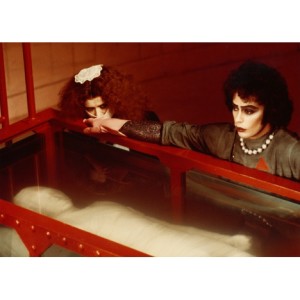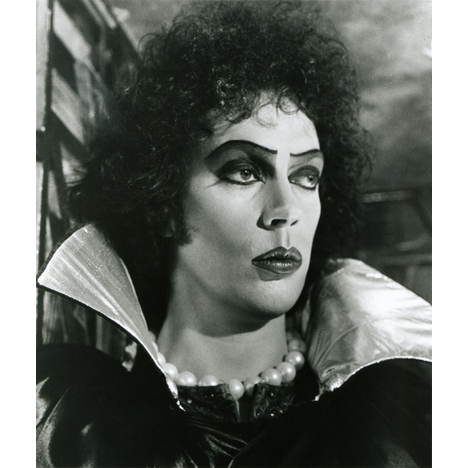Like many other American citizens, I listened to President Obama’s State of the Union address Tuesday evening. Full disclosure: I was an early supporter of the President in his first election campaign—but, as I’ve stated on the record, I live in a state of deep denial. But that was then; and now…. let’s just say the crowing before a majority Republican Congress became a bit tedious. But this is the tradition: it’s homecoming night on Capitol Hill and the President plays homecoming king. Everyone (even the Republicans to some extent) is there to cheer him on, even as they’re reviewing their playbooks for the next scrimmage.
First of all – what exactly is The American Dream? The way it’s used by politicians—and outside of academia, it’s only used by politicians—is such a vague, catch-all concept as to be practically meaningless. For that matter, I can’t imagine literature, political science or sociology professors spending much time on it. Students comprehend the domain of meanings behind the phrase from their encounters with popular culture and commercial advertising, Fitzgerald’s The Great Gatsby (amongst other novels of that generation), and even their own family experience, long before they leave home for college. It’s the undercurrent of disillusionment running just beneath their bright-eyed hopes for the fresh knowledge and experiences higher education promise. They’re already in a Gatsby-embryonic state, with hopes of emerging at some advantageous distance from the ‘gray wasteland’ between ‘East and West Egg.’ Sarah Churchwell, who has deeply mined this vein in her own literary research, has described it as a “broken promise.” In other words, the American Dream has almost always been described in terms of what it’s not. What it has become is a generic bromide.
Except in a way, it’s not so generic: it’s not the same for everyone. Chances are it’s as different from one person to the next as Brooklyn is from Iowa City. It’s not only hackneyed; it’s a fallacy. Dreams contend with real-life circumstances; beyond which they contend with other people’s dreams—which can be sheer hell. In the aggregate, the notion depends upon an expanding pool of opportunities and sheer possibility. Long before the post-Lewis and Clark doctrine of “Manifest Destiny” and Frederick Jackson Turner’s “Frontier Thesis, many observers from the first colonial historians to de Tocqueville saw that the sense of expanding (or exploding) boundaries, personal liberty and agency, invention and mobility had much to do with limitless horizons in almost every direction.
I sometimes wonder if the game wasn’t over when the first New Yorkers crossed the Hudson. In its earliest, purest incarnation, the ‘American Dream’ was nothing more than the Jeffersonian “pursuit of happiness.” But simpler doesn’t necessarily mean easier. The Puritan’s dream was not the planter’s—to say nothing of those ‘witches’ the Puritans wanted to burn. (They still want to burn us.) Remember they called it the “City of Brotherly Love.” In order to get ahead, some of us had to just get away.
So into the woods and across the rivers we traveled—pretty miserably, usually making other people miserable in the process; giving rise to a few new character types, not always entirely savory: trailblazers, pioneers and frontiersmen (and women), explorers, wildcatters, and gold-diggers, industrial tycoons, speculators, dreamers and schemers—each marking the national ‘character’ in their disparate pursuits—fatal only to native Americans (ooops), various bovine species, and of course the passenger pigeon. Until they reached the Pacific coast. Today, the American Dream, usually implies someone (usually non-American) else’s Nightmare.
This was not where the President was going. (Hey—we’re out of Afghanistan! Sort of….) So in the sequence of feel-good, aw-shucks sound-bytes, we came to “Ben and Rebekah”—which brought us a little closer to the turf James Truslow Adams was developing when he coined the term, ‘The American Dream.’ Except that the President didn’t actually come to the phrase until he made the segue between the very ‘dreamy’ linkage of industry/work ethic and “growing opportunity” and (Afghanistan!) the “returning veteran.”
The lead-up was a slightly less glamourous, but honest: “Middle-class economics.” Adams addressed this aspect of the ‘Dream’ in his book (which is actually titled, The Epic of America). Oh baby, baby—where did the ideals go? Well that’s always been a big part of it. The TV Jeffersons did it with more pzzazz; but remember they were moving “on up,” to that “deluxe apartment in the sky,” having finally grabbed their “piece of the pie.” (Look it up, kids; there’s probably something on YouTube.)
It’s not President Obama’s fault; the social compact underlying this ethos started unravelling with Reagan and his other Republican predecessors (and probably Clinton). But the cynicism was there long before, even as an earlier generation labored earnestly to blaze a “New Frontier,” to construct a “Great Society.” Eisenhower was probably a bit more clear-eyed about it, warning of the impending “military-industrial complex.” (Who knew a Congress of GOP Terminators would spring up to put it on steroids?)
 In the meantime, the ‘pie’ is shrinking; and there are twice as many ‘Ben’s’ and ‘Rebekah’s’ trying to grab their piece of it—globally. Those hordes following in our out-size carbon footprints are scouring oceans and forests as if their ‘manifest destiny’ was to leave the planet for retirement homes on Mars. The ‘Dream’ has come back as a nightmare to haunt us. Can we all just give it a rest? I’ll be sitting out next year’s SOTU at the movies. I’m looking for a Rocky Horror-style President who can tell us not to “dream it,” but to “be it.”
In the meantime, the ‘pie’ is shrinking; and there are twice as many ‘Ben’s’ and ‘Rebekah’s’ trying to grab their piece of it—globally. Those hordes following in our out-size carbon footprints are scouring oceans and forests as if their ‘manifest destiny’ was to leave the planet for retirement homes on Mars. The ‘Dream’ has come back as a nightmare to haunt us. Can we all just give it a rest? I’ll be sitting out next year’s SOTU at the movies. I’m looking for a Rocky Horror-style President who can tell us not to “dream it,” but to “be it.”


